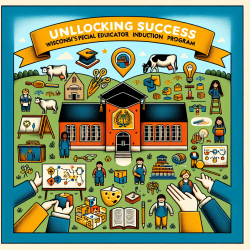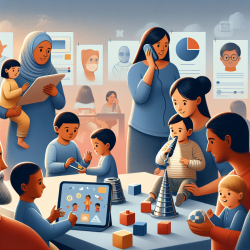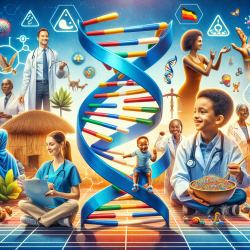Introduction
The COVID-19 pandemic and the racial justice movements in the United States have significantly influenced various sectors, including medical education. A recent study titled COVID-19, Racial Injustice, and Medical Student Engagement With Global Health: A Single-Institution Survey provides valuable insights into how these events have reshaped medical students' perspectives on global health (GH). This blog aims to explore how practitioners, particularly those involved in speech language pathology and online therapy services, can leverage these insights to enhance their skills and contribute to better outcomes for children.
Key Findings of the Study
The study surveyed medical students from the University of California, San Francisco, to understand their engagement with GH amidst the pandemic and racial justice movements. Here are some of the key findings:
- Most students entered medical school with an interest in GH, with 90% becoming interested before enrollment.
- Students' definitions of GH evolved to include themes of equity and racial justice, influenced by the pandemic and racial justice movements.
- Despite the pandemic, 60% of students planned to incorporate GH into their careers, highlighting a sustained interest in the field.
Implications for Practitioners
Practitioners in speech language pathology and related fields can draw several lessons from these findings:
- Embrace a Broader Definition of Health: The shift in students' definitions of GH to include equity and racial justice underscores the importance of considering social determinants of health. Practitioners should integrate these considerations into their therapeutic approaches to address the holistic needs of children.
- Leverage Technology: The pandemic has accelerated the adoption of telemedicine and online therapy services. Practitioners should continue to harness these technologies to expand access to care, particularly for underserved populations.
- Promote Interdisciplinary Collaboration: The interconnectedness of global health issues calls for collaboration across disciplines. Practitioners should seek opportunities to collaborate with other healthcare professionals to address complex health challenges.
Encouraging Further Research
The study highlights the evolving landscape of medical education and its implications for future healthcare practitioners. To stay ahead, practitioners should consider engaging in further research and professional development opportunities. This could involve:
- Participating in workshops and seminars focused on global health and social determinants of health.
- Collaborating with academic institutions to contribute to research on the impact of social and environmental factors on child development.
- Exploring innovative therapeutic approaches that address the unique needs of diverse populations.
Conclusion
The insights from the study on medical student engagement with global health offer valuable lessons for practitioners in speech language pathology and online therapy services. By embracing a broader definition of health, leveraging technology, and promoting interdisciplinary collaboration, practitioners can enhance their skills and contribute to better outcomes for children. To read the original research paper, please follow this link: COVID-19, Racial Injustice, and Medical Student Engagement With Global Health: A Single-Institution Survey.










